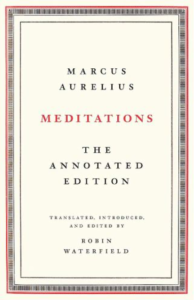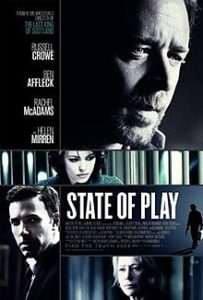So, What Were You Expecting?
Meditations on Reality, Personal Relationships, and Social Ills
“The vast majority of our mental, emotional, and spiritual suffering,” says Maria Popova, the brain behind BrainPickings, “comes from the violent collision between our expectations and reality.” And since it’s only rarely possible to bend reality to our will, the intelligent course of action is “to calibrate our expectations to reality.”
In simpler terms: Don’t make yourself miserable being angry about events and outcomes that are beyond your control.
This is a basic tenet of Stoicism, and it is not a difficult concept to understand. Most people understand it when it comes to events and outcomes such as flat tires and cancelled birthday parties. But few apply it to more important aspects of life – including, most notably, relationships with friends, family, and colleagues.
Meditations is a collection of writings by Marcus Aurelius, emperor of Rome from AD 161 to 180. It’s kind of a self-help journal written from a Stoic’s perspective – a series of notes that Aurelius almost certainly never meant to be published.
And it’s jam-packed with solid advice and Stoic wisdom.
For example, on the issue of people that act in ways you find hurtful or offensive, Aurelius has this to say:
Whenever a person’s lack of shame offends you, you should immediately ask yourself, “Is it possible for there to be no shameless people in the world?”
[Since it isn’t], you should stop demanding the impossible….
Keep the same thought available for when you’re faced with [other sorts of] devious and untrustworthy people, and people who are flawed in any way.
The moment you remind yourself that it’s impossible for such people not to exist, you’ll be kinder to each and every one of them.
Thus too… we human beings can deal with any given offense – gentleness, for instance, to counter discourteous people…
A three-step method for dealing with disappointing behavior:
-
- Don’t be upset. Nothing happens that isn’t in accord with universal nature. Before long you won’t exist at all.
-
- Always define or describe to yourself every impression that occurs to your mind, so that you can clearly see what the thing is like in its entirety, stripped to its essence. Nothing is more conducive to objectivity than the ability methodically and honestly to test everything that you come across in life.
-
- Focus on the matter at hand. See it for what it is. And then take the action that seems to you to be the most just. But do it with kindness and modesty, and without dissembling.
Further Thoughts on Accepting Reality vs. Unrealistic Expectations
There is more to Stoicism than the idea that we should see the world for what it is and not impose unrealistic expectations on it. But I find it interesting that it has not only made an important contribution to the modern philosophy of living well, it can be found in Zen Buddhism and Cognitive Therapy. They all recognize the common-sense truth that wisdom begins by accepting the world as it is, not how you’d like it to be.
That goes double for personal relationships. I not only believe, I know that the only way to maintain relationships and be happy in them is to expect that the person you married or befriended or to whom you are related will always be exactly the person he/she was when you first met.
Once a person is formed, and that usually happens in their late teens or early 20s, he/she is formed for good. People rarely change. And when they do, it’s almost always for the better. So, if you are happy with the imperfect mix of a person when you first meet him/her, expect he/she won’t ever change and you will never be disappointed.
And that leads me to this thought (which is inchoate): All social, business, and government programs whose aim is to improve adult behavior is doomed to failure. Think about the failure rate of addiction programs. Or the shockingly bad results of public education. Or the near impossibility of trying to improve business performance by “motivating” employees to work harder and smarter.
Despite decades of retrogressive results, we continue to believe that the problems with these failed programs is not that they are fundamentally wrong-headed, but that we haven’t spent more money on them.
You can’t fix a problem by spending more on a solution that doesn’t work. What if, instead, we accepted the reality of the problem – that it cannot be fixed by changing the behavior of the people involved?
What if, instead of continuing to unrealistically believe we can “help” addicts get clean, we accept the fact that more than 90% of them never will? And that those that do will do so on their own? What if we went a little deeper and asked, “What is the social problem with addiction anyway? What social problems do addicts cause?”
It’s not difficult to identify those problems. There are three of them: crime, homelessness, and infectious diseases. All three could easily be solved by providing large, clean facilities where addicts can get their drugs in a sanitary way when they want them, along with a bed and food.
That would actually work, and probably for 20% of what we spend now. But it’s not going to happen, because drug rehab – including hospitalization and incarceration – is a multibillion-dollar business with strong support among the politicians that win their posts by promising to spend more money on the same failed programs.



